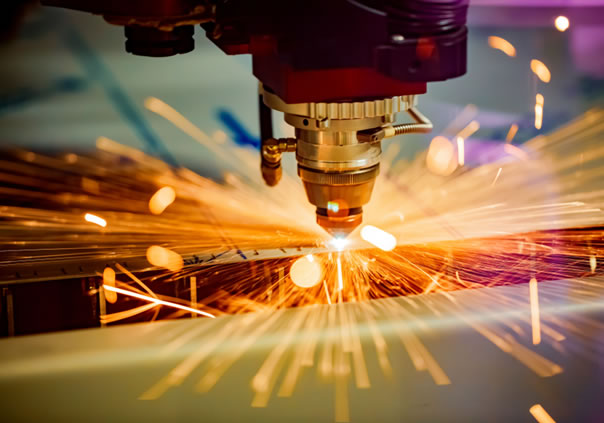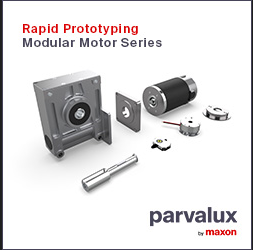6 Enterprise Best Practices That SMB Manufacturers Can Steal from Big Business
SMB manufacturers have always had to work harder to compete with the power of big business. Larger manufacturers have more resources, more capital and more ability to create economies of scale. That means that making it as a SMB manufacturer requires finding creative solutions that allow you to do more with less and create a leaner process.
Fortunately, it’s actually possible to take many of the fundamental strategies and processes that big manufacturers use and apply them at a smaller scale. The six best practices we’ll discuss here are all major parts of how enterprise-level manufacturers play the game—but they can also provide a critical boost for SMB manufacturers.

Make data and analytics central to your business model.
Any business, in any sector from retail to manufacturing, must learn to use data efficiently to thrive in the 21st century marketplace. Data analysis helps businesses allocate their resources more intelligently, which is critical for SMB manufacturers who need to stretch their budgets further.
Robust automated data collection and predictive analytics functions that were once only available to big business are now within reach of many SMBs. Numerous cloud-based ERP software systems now allow manufacturers to collect enormous amounts of data about suppliers, customers, manufacturing processes and more and then integrate that data into a comprehensive system for understanding challenges, goals and progress.
The challenge, of course, is to collect not just any data, but actionable data that can be used to make targeted improvements. Take some time to review your KPIs and ask yourself if you might need to develop new ones or adjust your collection methods to create an accurate picture of what’s happening on the ground.
Invest in training that creates results.
Enterprise manufacturers understand that good training for employees is the ultimate upstream investment. A better-trained workforce will reward manufacturers with higher productivity, lower turnover and lower costs in the long run.
More often than not, real training for the new millennium means developing critical thinking and process management skills that can be applied across disciplines and even job titles. Consider the technologies that your company can adopt to make training more effective. Technologies such as virtual reality and augmented reality can give employees a more immersive and practical grounding in key skills.
When designing your training program, think also about how being a small business can give you unique advantages. Arranging for trainers to spend more one-on-one time coaching each employee and encouraging senior employees to mentor junior ones are great ways to leverage your strengths and become a workplace where employees invest in each other.
Invest in retaining talent.
The flip side of the previous tip is that good training without retainment is a losing proposition. You don’t want to pour resources into training employees, only to have your employees leave. Thus, it’s critical to make human capital investments with an eye toward the long term.
One of the most important ways to retain top manufacturing talent is to compensate your employees appropriately and provide them with the benefits they deserve. Skilled employees who have grown successful relationships with co-workers and suppliers don’t come cheap, but employee turnover is even more costly to employers.
It’s equally important to create a welcoming and positive culture in your SMB manufacturing business. Small businesses often live and die on their culture because their culture is how they foster loyalty and productivity among their employees. Mentorship, as previously mentioned, is a key for creating a strong community, as is creating a culture that’s free of discrimination and harassment.

Look at your options for automation and AI.
Automation and AI are creating big opportunities for manufacturers of all sizes, and you don’t have to be a corporate behemoth to get value out of smart investments in automation. There are all kinds of little ways to make your shop floor smarter that can add up to big gains in productivity.
Internet of Things devices are among the most popular ways to create a more connected and automated manufacturing process. When deployed correctly, IoT sensors can provide incredibly valuable data about productivity, quality control, resource utilization and much more–and they can send out instant alerts or even stop production in case of a malfunction. Other AI systems are used to guide employees through their duties and help them optimize their workflows.
The key to making smart investments in AI is to identify the specific goals that your business seeks to achieve with it. You don’t want complexity for complexity’s sake. You want AI systems that target a specific problem and offer a concrete method for improving it.
Analyze your procurement strategies.
Procurement can be challenging to master for SMB manufacturers, who often don’t have the deal-sweetening buying power that bigger businesses have. To make up the difference, SMB manufacturers have developed some unique strategies that allow them to punch above their weight when it comes to procurement.
Forming purchasing consortia with other SMB manufacturers is one strategy that can help secure better prices. The combined buying power of several manufacturers can be a substantial boon in negotiating better deals with suppliers and distributors.
Another procurement strategy is to design products that can be more readily manufactured with stock or customized parts, rather than fully-custom components. Plastic enclosures, for example, can often be obtained with customized cutouts without the expense of fully-custom manufacturing.

At the end of the day, the size of your manufacturing business may not matter as much as whether your management can adopt the best and most efficient qualities of a big business. By thinking strategically and planning for the long-term, a SMB manufacturer can move like a power player—and, in time, perhaps grow into one.
Comments (0)
This post does not have any comments. Be the first to leave a comment below.
Featured Product

